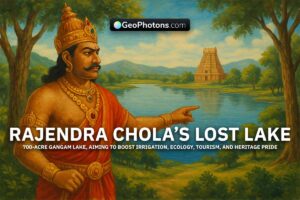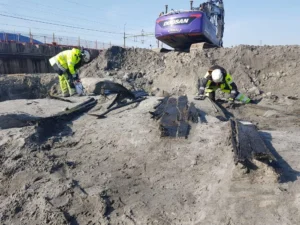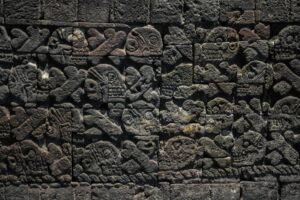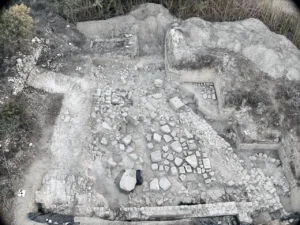Death of Pope Francis

Table of Contents
Toggle1. Who Was Pope Francis?
Pope Francis, born Jorge Mario Bergoglio on December 17, 1936, in Buenos Aires, Argentina, became the 266th pope of the Roman Catholic Church on March 13, 2013. His election was historic for several reasons:
- He was the first Latin American pope, breaking a long tradition of European popes.
- He was also the first Jesuit pope, belonging to the Society of Jesus—a Catholic order known for education, intellectual rigor, and missionary work.
- He chose the name Francis in honor of Saint Francis of Assisi, symbolizing humility, poverty, and care for nature.
Known for his simplicity and humility, Pope Francis chose to live in a modest guesthouse (Domus Sanctae Marthae) rather than the grand papal palace. His teachings emphasized compassion, inclusion, and justice, especially for the poor, the marginalized, and the environment. He took bold stances on global issues, including:
- Climate change: He authored the encyclical Laudato Si’, calling for urgent environmental action.
- Economic inequality: He often criticized unrestrained capitalism and promoted ethical economics.
- LGBTQ+ rights: He called for more inclusion in the Church, famously saying, “Who am I to judge?”
- Migration and refugees: He defended the rights of displaced people worldwide.
He became a moral guide not just for 1.3 billion Catholics, but also for people of other faiths and even non-believers, due to his progressive and humanitarian vision.
2. What Power Did Pope Francis Hold?
The pope holds unparalleled spiritual and administrative authority within the Catholic Church. His power includes:
- Doctrinal Authority: Through the concept of “Ex Cathedra” (Latin for “from the chair”), the pope can make infallible statements on doctrines related to faith and morals. These declarations are binding for all Catholics worldwide.
- Administrative Power: As the head of the Vatican City State, the pope is also a sovereign leader of an independent nation.
- Appointments: He appoints bishops and cardinals, thereby shaping the future leadership and ideological direction of the Church.
- Diplomatic Influence: The pope often acts as a mediator in international conflicts and speaks on ethical issues like war, peace, human rights, and poverty.
- Cultural Role: As a global religious figure, his statements influence millions of people, political decisions, and even interfaith relations.
Under Pope Francis, the Vatican engaged more openly with modern issues and began internal reforms, including improved financial transparency, child protection measures, and promoting diversity within the Church.
3. What Happened Around His Death?
Pope Francis passed away on April 21, 2025, at the age of 88, at his residence in Domus Sanctae Marthae in Vatican City. His death shocked the world, even though he had battled health issues in recent years, including colon surgery and recurring respiratory problems.
However, a conspiracy theory emerged due to the timing of his death. On April 20, 2025, just one day before his death, he held a private meeting with U.S. Vice President JD Vance, who was visiting Europe at the time.
This led some online communities and commentators to question whether his death was natural or had political undertones. The conspiracy theories were based on:
- Timing: The short gap between the high-profile meeting and his death.
- Political Context: Speculations that ideological disagreements between the Vatican and certain political factions could have led to foul play.
- Suddenness: Though Pope Francis had health problems, he had appeared stable before the meeting.
Despite these rumors, the Vatican officially declared that the pope died of natural causes related to age and chronic illness. They emphasized that no signs of external interference were found, and no evidence supports the idea of foul play.
Such conspiracy theories are not new. Historically, the deaths of high-profile figures—especially those with global influence—often attract speculation. From Pope John Paul I (who died just 33 days into his papacy) to political leaders like JFK, untimely or unexpected deaths often give rise to alternate theories, especially in the age of social media.
4. Why Do These Conspiracy Theories Matter?
While the theory surrounding Pope Francis’s death lacks factual support, its emergence highlights several social phenomena:
- Distrust in Institutions: Many people are increasingly skeptical of official narratives, especially involving government or religious institutions.
- Media Amplification: Social platforms can spread speculative stories rapidly, influencing public opinion without proper evidence.
- Global Influence of Leaders: The more globally impactful a leader is, the more their actions and deaths are subject to scrutiny.
- Polarization: Ideological divides—between conservative and liberal factions—can fuel narratives that fit specific worldviews.
It’s important for the public to differentiate between facts and speculation, especially when dealing with sensitive events. Misinformation in such matters can damage international relations, religious harmony, and historical records.
Conclusion: A Legacy That Transcends Rumors
Pope Francis’s life was one of service, compassion, and reform. While rumors surrounding his death may circulate, they do not diminish his profound legacy. He reshaped the image of the papacy by prioritizing humility, justice, and dialogue over formality and tradition. His messages of peace, inclusivity, and environmental stewardship continue to resonate globally. Whether or not one follows the Catholic faith, his impact as a moral leader will be remembered for generations.













Post Comment